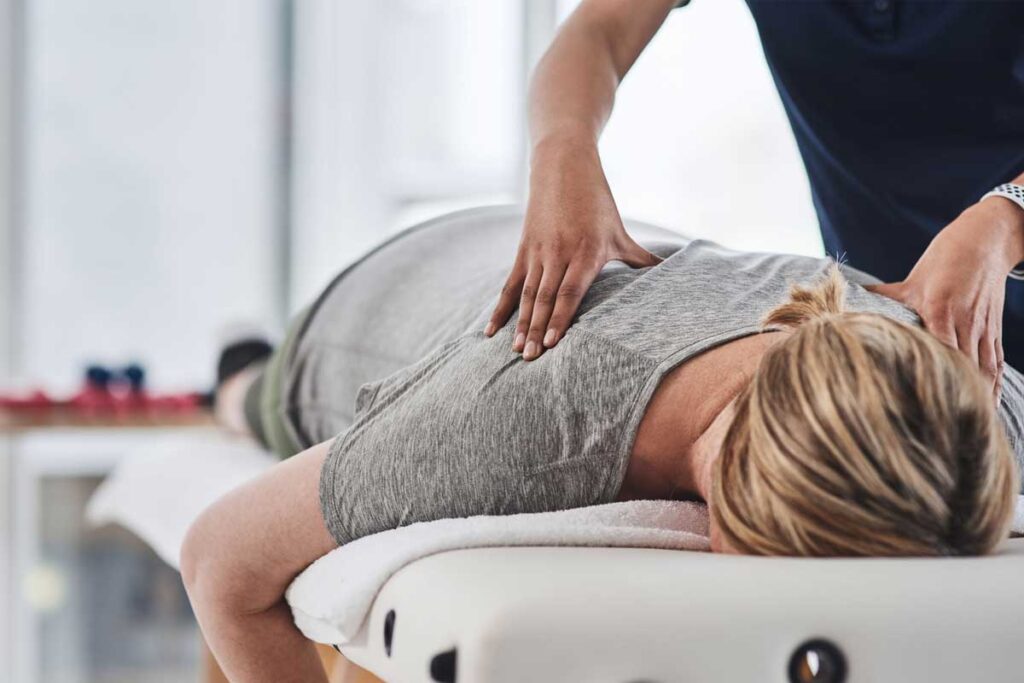Do you often wake up with upper back pain after sleeping? If so, you’re not alone. Many people experience discomfort in their upper back, neck, and shoulders after a night of rest. This can make it challenging to start your day on a positive note and may even lead to chronic pain if left untreated. In this blog post, we’ll explore the common causes of upper back pain after sleeping and provide practical tips to help you find relief and improve your sleep quality.
Understanding the Causes
There are several factors that can contribute to upper back pain after sleeping. One common cause is poor sleeping posture. Sleeping in an awkward position or using an unsupportive mattress and pillows can strain your upper back muscles and lead to pain. Additionally, stress and tension can accumulate in this area, especially if you carry a lot of stress in your shoulders and neck.

Tips for Fixing Upper Back Pain After Sleeping
1. Invest in a Supportive Mattress and Pillows: A comfortable and supportive mattress that aligns your spine can make a significant difference in alleviating upper back pain. Opt for a medium-firm bed and use pillows that provide adequate neck and shoulder support.
2. Improve Your Sleeping Posture: Try to maintain a neutral sleeping position by avoiding twisting or bending your upper back unnaturally. If you’re a side sleeper, consider placing a pillow between your knees to promote proper spinal alignment. Back sleepers can place a small pillow under their knees to reduce strain on the upper back.
3. Stretch Before Bedtime: Gentle stretching exercises can help relax your muscles and relieve tension in the upper back. Focus on stretching your neck, shoulders, and upper back to release any built-up tightness.

4. Practice Stress Management Techniques: Stress and anxiety can contribute to muscle tension and exacerbate upper back pain. Incorporate stress management techniques such as deep breathing, meditation, or yoga into your daily routine to promote relaxation.
5. Apply Heat or Cold Therapy: Applying a heating pad or a cold pack to your upper back can help reduce inflammation and ease muscle soreness. Experiment with both methods to see which provides the most relief.
6. Seek Professional Help: If your upper back pain persists or worsens despite trying these self-care measures, it’s essential to consult a healthcare professional. They can evaluate your condition, provide a proper diagnosis, and recommend additional treatment options tailored to your specific needs.
Don’t let upper back pain after sleeping disrupt your daily life. By addressing the causes and implementing these practical tips, you can find relief and improve your sleep quality. Remember, everyone is unique, and what works for one person may not work for another. Listen to your body, make adjustments as needed, and don’t hesitate to seek professional help if necessary. With a proactive approach, you can overcome upper back pain and wake up feeling refreshed and pain-free.
If you are struggling with persistent upper back pain after sleeping? Consider seeking professional help from Texas Specialty Clinic. Don’t let pain hold you back any longer. Contact us at (469) 225-0666 to schedule an appointment and start your journey towards pain-free sleep.
